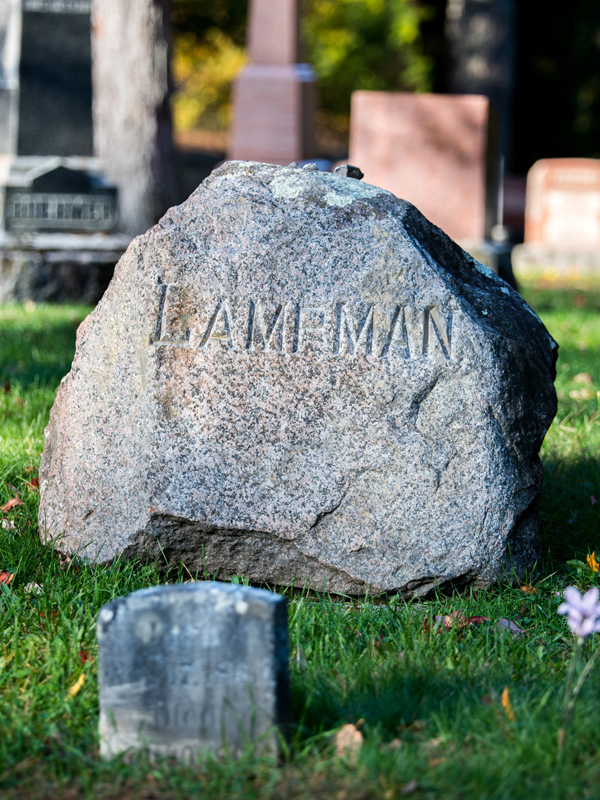
Archibald Lampman: Canada’s Celebrated Poet
Location: Section 25, Lot 17 N Ctr
Archibald Lampman, born in 1861, holds a revered place in Canadian literary history as one of the country's finest 19th-century English-language poets. His life, though marked by personal and professional challenges, left an indelible mark on Canada's cultural and literary landscape.
Early Life and Education - Lampman was educated at Trinity College School in Port Hope and later at Trinity College in Toronto, where he earned a BA in 1882. Initially attempting a career in teaching, he soon found it unfulfilling and secured a position with the Post Office Department in Ottawa in 1883, where he worked until his untimely death.
Literary Pursuits - Lampman's true passion lay in poetry. His journey as a poet began with contributions to his college magazine, Rouge et Noir, and he gradually gained recognition in prestigious publications such as The Week, Atlantic Monthly, Harper's, and Scribner's. Despite early setbacks in publishing his work, he self-published his first collection, Among the Millet, in 1888. His persistence paid off when a Boston publisher released his second book, Lyrics of Earth, in 1896. His third collection, Alcyone and Other Poems, was published posthumously in 1899, and its contents were later included in The Poems of Archibald Lampman (1900), edited by his friend and fellow poet Duncan Campbell Scott.
Legacy and Recognition - Lampman's poetry collections continued to be published posthumously, ensuring his lasting influence on Canadian literature. Notable collections include Lyrics of Earth: Sonnets and Ballads (1925), At the Long Sault (1943), and Selected Poems (1947). His Selected Prose was published in 1975, further cementing his literary legacy. Lampman’s detailed and meaningful poems have left a lasting impact on Canadian literary culture. His significance is commemorated across Ottawa through historical plaques and memorials. These can be found on Slater Street, Daly Avenue, Montreal Road (in St. Margaret’s Church), and at Beechwood Cemetery, where he is buried. His likeness appears in the grand stained-glass window at the Main Branch of the Ottawa Public Library alongside literary giants such as Shakespeare, Byron, and Tennyson. Additionally, he has a street named after him, and the Arc Magazine annually awards the Archibald Lampman Prize to recognize local achievements in poetry.
Personal Life and Character - Known to be reclusive and shy, Lampman found companionship among Ottawa's writers and intellectuals. He collaborated with Duncan Campbell Scott and William Wilfred Campbell on the lively column “At the Mermaid Inn” (1892-93) for the Toronto Globe. He was active in various literary and scientific groups in Ottawa, often reading his poems or delivering papers. In 1895, he was elected a Fellow of the Royal Society of Canada, a testament to his contributions to Canadian literature.
Themes and Style - Lampman's poetry is celebrated for its vivid depictions of nature, imbued with moods of delight and solemn contemplation. He excelled in sonnet writing but was also known for his narrative poems and his occasional sharp critique of industrial civilization. Despite his professional dissatisfaction and bouts of poor health, Lampman’s poetry provided a refuge where he could explore idealized communities and dreamlike states.
Final Years and Death - Lampman's later years were marred by a spiritual malaise, worsened by the death of his infant son and his declining health. He passed away on February 10, 1899, at the age of 37, leaving behind a legacy that continues to inspire and influence Canadian poets and literary enthusiasts. Archibald Lampman’s life and work are a testament to his profound impact on Canadian poetry. His detailed and contemplative nature poems, along with his contributions to literary culture, ensure that he remains a celebrated figure in Canada’s rich literary history.

